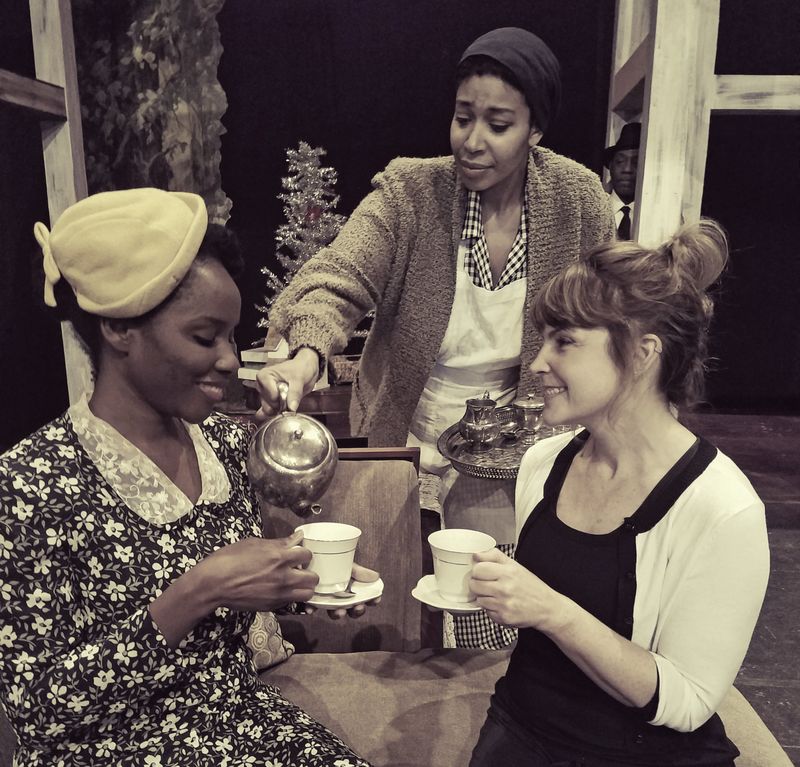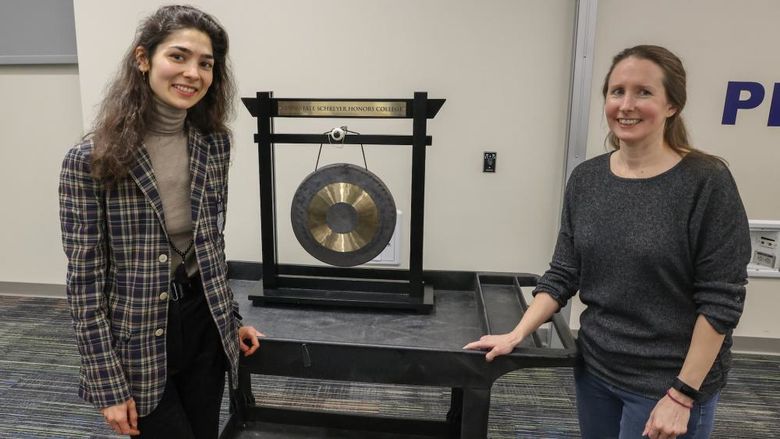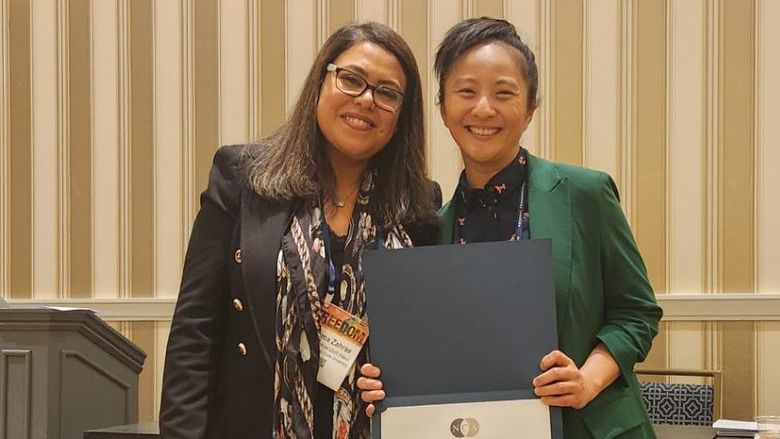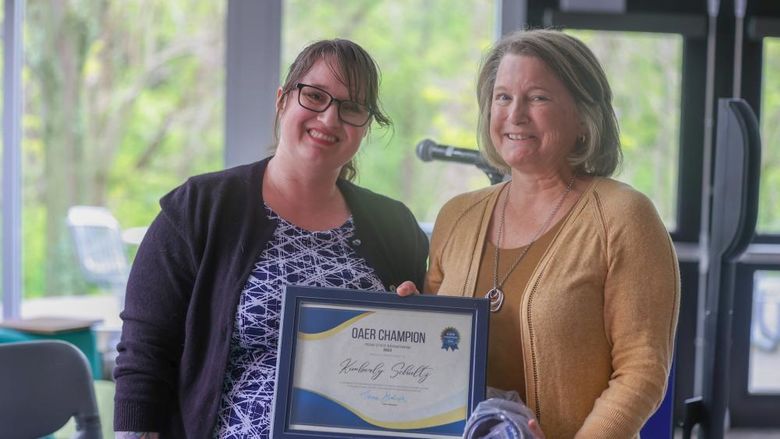MEDIA, Pa. — Starting Friday, Feb. 10, Deb Braak, instructor in theatre at Penn State Brandywine, will move a staple of her Brandywine theatre courses from the classroom to the stage. Braak is currently directing a modernized rendition of Henrik Ibsen’s classic play “A Doll’s House” for the Players Club of Swarthmore.
“A Doll’s House” follows young housewife Nora as she attempts to establish her identity while keeping an old secret from her self-important husband. The play has been a staple of Braak’s theatre courses for several years.
“In my introduction to theatre course, we look at the play as an extension of its time period,” said Braak. “We talk about how it helped establish Ibsen as the father of realism in theatre. In my course on gender and theatre, we look at the social impact of the play.”
For the Players Club of Swarthmore performance, Braak is modernizing certain elements of the play to include issues of race and class.
“The original play was written in 1879,” she said. “Back then, the idea of a woman leaving her husband and children to find herself was very controversial and interesting. Today, that’s not such a new idea — so I’ve moved the play into the 1960s to make it a comment on privilege and power.”
Braak casted Nora, her husband, and her best friend as upper middle class, white Americans and the supporting characters Kristine and Krogstad as black Americans. She hopes this decision will help the audience to think about Nora’s struggle within the context of class and racial differences in addition to gender.
“Hopefully, we will be able to see that Nora’s ideas, choices and desires develop as a result of talking to Kristine and hearing what her life is like,” she said.
According to Braak, the inspiration for her modernized rendition of “A Doll’s House” came from teaching the play at Brandywine.
“There are already traces of class commentary in the original,” she said. “All I’ve done is added race to that. That’s an angle that, for me, has developed after several semesters of teaching.”
Even beyond the classroom, Braak strongly believes in the power of theatre as a medium for message-based entertainment and meaningful dialogue — and she hopes that patrons of the Players Club of Swarthmore engage with the message of “A Doll’s House.”
“Your life experience informs your theatre experience, and I’m at a point now where I want to say something significant about what’s going on in the world around me,” she said. “You can’t always predict how your audience will accept a play or what perspective they will adopt, but hopefully ‘A Doll’s House’ works in the way we’ve intended.”
“A Doll’s House” will run from Feb. 10 to 25. Tickets cost $15 or $8 for students and can be purchased at www.pcstheatre.org.
On Sunday, Feb. 19, the cast and crew of “A Doll’s House” will host a question-and-answer session after the show.






